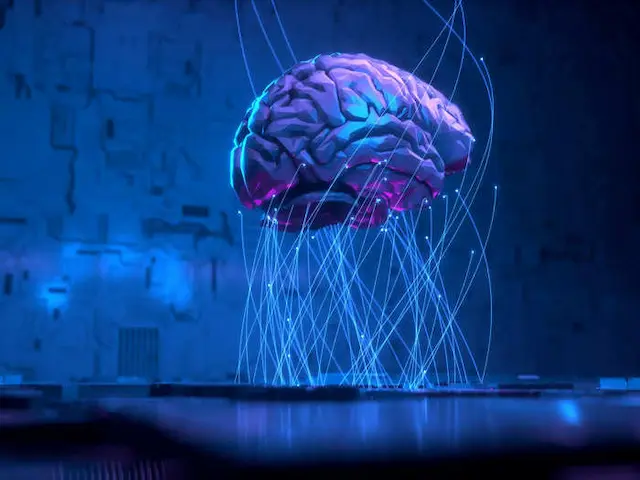In the rapidly advancing realm of technology, a groundbreaking development is on the horizon—mini-brains made from human tissue are being explored as living computers. This remarkable innovation signifies a paradigm shift in both computing and neuroscience, challenging our conventional understanding of technology and biology. As we delve into this fascinating topic, we uncover the implications of mini-brains and how they are transforming the way we think about machines and intelligence.
Understanding Mini-Brains
Mini-brains, scientifically referred to as brain organoids, are tiny, three-dimensional clusters of human brain cells that are cultivated in laboratory settings. These structures are not mere simulations but rather living entities grown from stem cells that replicate the organization and function of actual human brain tissue, albeit on a significantly reduced scale. Brain organoids consist of a complex network of neurons and glial cells, which interact to create a rudimentary but functional representation of human brain activity.
The ability to create these miniaturized brain models allows researchers to explore various aspects of brain biology in ways that were previously unimaginable. They provide a unique platform to study brain development, function, and pathology, all while offering insights into neurological conditions and potential therapies.
The Role of Mini-Brains in Computing
The integration of mini-brains into computing represents a revolutionary convergence of biological and digital processes. This approach differs significantly from traditional computing methods that rely solely on silicon-based circuitry. Here are several key ways mini-brains are influencing the future of computing:
Biological Processing Power
Unlike traditional computers, which utilize binary code (1s and 0s) for data processing, mini-brains interpret information through biological mechanisms. This method could lead to the creation of computing systems that are not only more efficient but also more adaptable than their silicon counterparts. By mimicking the human brain’s ability to learn, adapt, and solve problems, mini-brains could potentially usher in a new era of computing that operates on principles similar to human cognition.
Enhanced AI Development
The exploration of how mini-brains process information offers significant insights for the development of artificial intelligence (AI). By understanding the neural networks and cognitive functions at play in these living systems, scientists can refine AI algorithms to better simulate human thought processes. This could pave the way for more intuitive and capable AI, with applications across various fields, from healthcare to autonomous systems.
New Avenues for Research
Mini-brains also serve as a vital research tool for studying neurological diseases and understanding fundamental brain functions. By observing how these organoids respond to different stimuli, scientists can gain valuable insights into the mechanisms behind conditions such as Alzheimer’s disease, Parkinson’s disease, and other neurodegenerative disorders. This research holds promise for developing novel treatments and interventions that could improve the lives of those affected by such conditions.
The Promising Potential of Mini-Brains
The implications of mini-brains extend far beyond their immediate applications in computing and research. Their potential to revolutionize several domains includes:
Personalized Medicine
One of the most exciting possibilities for mini-brains lies in personalized medicine. As these organoids can be derived from individual patients, they may be utilized to tailor treatments based on each person’s unique neural patterns. This approach could lead to more effective therapies for various neurological and psychiatric conditions, ultimately enhancing patient outcomes.
Neuroprosthetics
The advent of more sophisticated neuroprosthetics could become a reality thanks to mini-brain research. By integrating living brain tissue with artificial limbs or devices, researchers could enhance the functionality of neuroprosthetics, providing users with a more seamless and natural experience. This innovation has the potential to greatly improve the quality of life for individuals with neurological impairments or injuries.
Ethical Considerations
While the promise of mini-brains is captivating, it also raises significant ethical questions. The use of human tissue to create brain organoids prompts discussions about consent, the definition of consciousness, and the potential for misuse of this technology. As we push the boundaries of science, it becomes crucial to address these ethical concerns to ensure responsible development and application of mini-brain technologies.
Navigating the Road Ahead
The journey from concept to application in the realm of mini-brains as living computers is fraught with complexities. As researchers continue to explore this burgeoning field, they will encounter challenges in integrating biological systems into technological frameworks. However, the potential rewards are immense.
The implications of mini-brains extend well beyond laboratory settings. They signify a convergence of biology and technology that could fundamentally reshape our understanding of artificial intelligence, personalized medicine, and cognitive research. As advancements in this field unfold, we may witness unprecedented discoveries that bridge the gap between the organic and digital worlds.
Conclusion
The emergence of mini-brains as living computers represents a monumental leap in our technological and scientific pursuits. By merging the intricacies of human biology with the capabilities of computing, we are entering an era where the boundaries between organic and digital are increasingly blurred. This innovative approach promises groundbreaking discoveries and advancements that could revolutionize not only science but also technology as we know it.
As we stand at the precipice of this new frontier, the potential of mini-brains in computing and neuroscience is tantalizing. Researchers and innovators are tasked with exploring the myriad applications and implications of this technology, ensuring that it is developed responsibly and ethically. The future holds exciting possibilities, and as mini-brains continue to evolve, they may unlock new realms of understanding, innovation, and creativity in both the scientific and technological landscapes.

